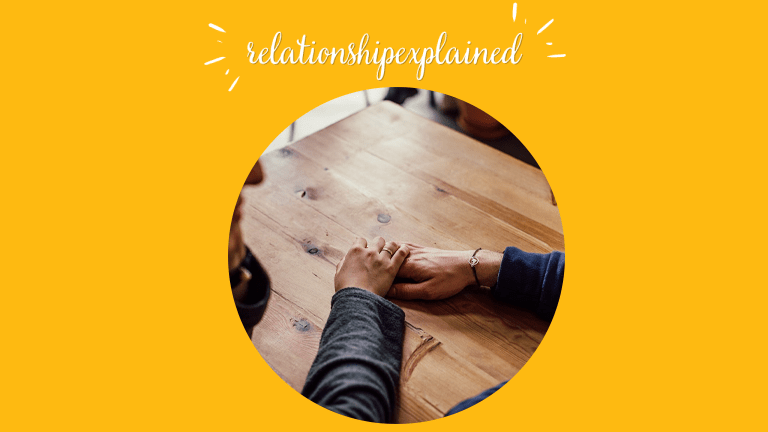Why Can’t I Sleep Without My Partner?
Do you have trouble falling asleep when your partner is not by your side? Then check out this guide to know what causes this and how you can overcome it.
If you’ve ever wondered why you just can’t seem to catch some quality shut-eye without your partner by your side, you’re not alone.
Getting accustomed to sleeping with a partner is quite natural, especially if you have been with them for a long time. But the problem arises when they go away for some reason, and suddenly, you can’t seem to get any quality sleep anymore.
In this article, we’re diving deep into the fascinating world of sleep patterns, psychology, and biology to unravel the mystery behind our dependency on a sleeping partner. We’ll explore the reasons why some of us struggle to drift off solo and provide some useful solutions that can be followed by people undergoing such an issue.
So, if you’re curious about what’s keeping you up at night, grab your favorite blanket and read on to find out why you can’t sleep without your partner!
Why Can’t You Get Quality Sleep Without Your Partner?
As we have mentioned before, the issue of not being able to sleep without a partner is quite common. The National Sleep Foundation found that only one out of four couples sleep apart. This implies that in the other three instances, the partners likely face sleeping issues when they are separated from each other.
There can be quite a few reasons behind such an issue, as we have discussed below.
1. Hormones And The Power Of Cuddling
One of the key factors that can explain your inability to sleep soundly alone lies in the realm of sleep hormones. When you cuddle with your partner or share a bed, your body releases oxytocin, often referred to as the “cuddle hormone” or “love hormone.” Oxytocin promotes feelings of relaxation, bonding, and trust, which can significantly improve your sleep quality.
This hormone not only makes you feel sleepy but also helps you stay asleep. It fosters a sense of security and safety, making you less prone to waking up due to fears or anxieties. Without this hormonal boost, sleeping alone may feel unfamiliar and less comfortable, leading to sleep problems.
2. The Habitual Sleep Routine
Habits play a substantial role in our ability to fall asleep and maintain a good night’s rest. Over time, you and your partner may have grown accustomed to a bedtime routine that involves sharing a bed. Whether it’s cuddling, talking, or simply enjoying each other’s presence, these rituals can become deeply ingrained in your daily routine.
When you try to sleep alone, the absence of these familiar sleeping habits can disrupt your sleep schedule. Your body may struggle to adjust to a new bedtime routine, making it difficult to fall asleep easily or sleep comfortably. Breaking the habit of sleeping together can be as challenging as quitting any other routine that you’ve followed for an extended period.
3. Fear And The Need For Security
Fear can be another powerful deterrent when it comes to sleeping without your partner. This fear may not necessarily be related to physical safety but could be rooted in emotional concerns. A long-distance relationship, for instance, can lead to separation anxiety, as sleeping alone serves as a stark reminder of the physical distance between partners.
Moreover, the comfort of having your partner beside you can alleviate nighttime anxieties and worries, allowing you to feel safe and relaxed. The absence of this emotional security can make you feel more vulnerable and anxious, which in turn affects your ability to sleep without your partner.
4. Comfort And The Sleep Environment
Your sleep environment also plays a crucial role in your sleep quality. Since you’re sharing a bed, you may have opted for a king-sized bed to ensure there’s enough space for both of you. The comfort of the same bed and the feeling of closeness contribute to better sleep. However, when sleeping alone or in separate beds, the environment may feel less comfortable, leading you to sleep worse than usual.
In some cases, loud disruptions or simply changes in surroundings can make you feel uncomfortable and hinder your ability to sleep alone.
5. Attachment And Emotional Dependency
Another significant factor that may contribute to your difficulty in sleeping without your partner is emotional dependency or attachment. When you’ve built a strong emotional connection with your partner, it’s natural to want their presence, even when you sleep.
Over time, you may have developed a reliance on your partner’s presence to feel relaxed and secure, which can affect your ability to sleep alone. This emotional bond can lead to feelings of incompleteness or loneliness when you’re apart, making it harder to sleep without them. It may also lead to thoughts of jealousy, which is often compared to territorial instincts in humans.
6. Phobias Related To Sleeping Alone
Phobias, particularly those related to sleeping alone, can be a compelling reason why some individuals find it nearly impossible to get a good night’s sleep without their partner. Specific phobias like monophobia (the fear of being alone) or somniphobia (the fear of falling asleep) can manifest when trying to sleep without a loved one.
These phobias can result in heightened anxiety and panic attacks when faced with the prospect of sleeping alone. The fear of the dark, unfamiliar sounds, or intrusive thoughts can intensify when there’s no one nearby to provide comfort and reassurance.
7. Grief And Loss
Grief, especially following the loss of a loved one, can significantly impact one’s ability to sleep alone. When a partner passes away, the absence in the bed can be a painful reminder of their absence in life. The grieving process can lead to a deep sense of loneliness and sadness that makes it challenging to sleep alone comfortably.
How Can You Get Enough Sleep Without Your Partner?
1. Invest In A Body Pillow
A body pillow can provide the sensation of cuddling and the feeling of body warmth, making you feel less alone. It is important to get the ideal body pillow that imitates the contours of your partner well, or else it might not give you the same sensation.
2. Create An Ideal Sleep Environment
If you are having trouble sleeping without your partner, then you can make your sleep space as inviting as possible. Consider using a weighted blanket for deep pressure stimulation, and use blue-light-blocking glasses to reduce the impact of artificial light from screens before bedtime. The blue light can interfere with your body’s production of melatonin, a hormone that regulates sleep.
3. Maintain Good Sleep Hygiene
Practicing good sleep hygiene is essential to get a restful night’s sleep without your partner. Stick to a regular sleep schedule, keep your bedroom dark and cool, and avoid engaging in stimulating activities before bedtime. Also, try to reduce the screen time before you go to bed, as that can make a huge difference in the sleep quality.
4. Use Relaxation Techniques
If you want to get a deep sleep, incorporate relaxation techniques into your bedtime routine. These can include mind and body exercises such as deep breathing or progressive muscle relaxation. Such techniques can help you unwind and fall asleep faster.
5. Try Herbal Tea
Consuming herbal tea is another tried and tested method of getting quality sleep at night, even without your partner. Sipping on chamomile tea before bed can have a calming effect, making it easier to relax and drift off to sleep.
6. Use A Sound Machine
Consider using a white noise machine or sleep music to drown out any disruptive noises that might make you feel uncomfortable sleeping alone. These sound machines generate a noise of equal intensity as the ambient environment, creating an ambiance that helps you to fall asleep quickly.
7. Maintain Your Preferred Sleeping Position
If you have a specific sleeping position you prefer when your partner is with you, try to replicate it as closely as possible. Using the same pillow that we have discussed in the first step can also add a sense of familiarity.
8. Gradual Transition
If you’re transitioning from sleeping with your partner to sleeping alone, consider a gradual approach. Start by spending some nights together and gradually increasing the nights you sleep separately. This can help you adapt to the change more comfortably.
9. Stay Active And Eat Nutritious Foods
Regular physical activity and a balanced diet can promote better sleep. Engage in regular exercise and avoid heavy or spicy meals close to bedtime.
Final Words
In conclusion, sleeping without your partner can be a challenging transition, influenced by a complex interplay of emotional attachment, phobias, habits, and hormonal responses.
However, as you can see from this guide, there are practical solutions to ease this process and improve your sleep quality when going solo. From investing in a body pillow for comfort to practicing good sleep hygiene, using relaxation techniques, and creating an ideal sleep environment, these strategies can make a significant difference.
Remember that adapting to sleeping alone takes time, but with patience and a willingness to explore these solutions, you can enjoy restful nights and peaceful slumber on your own.













